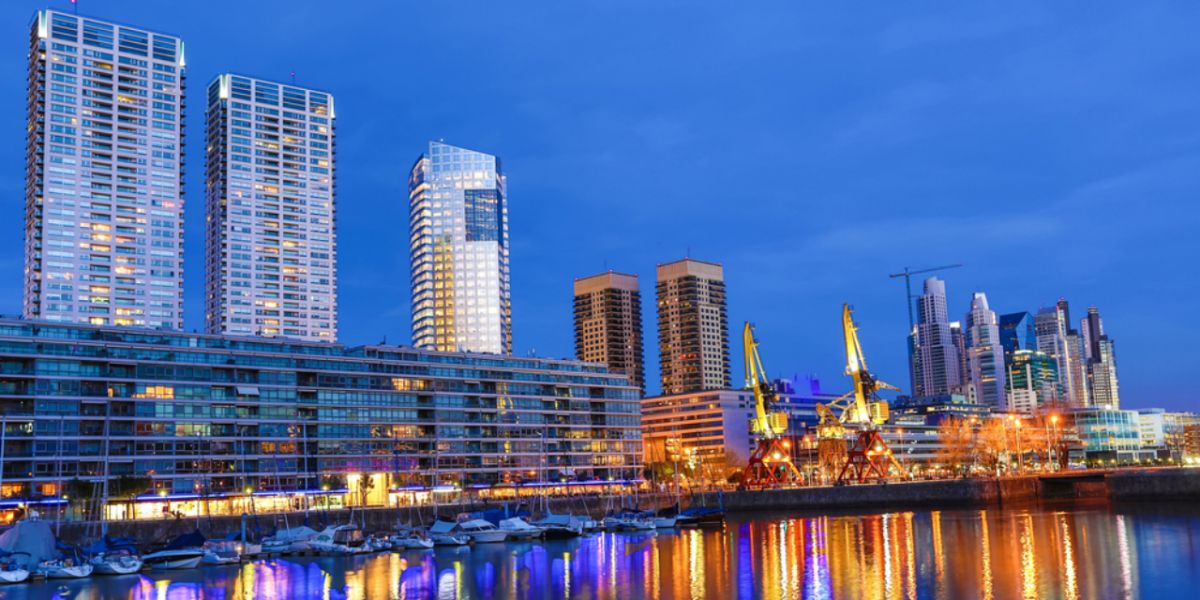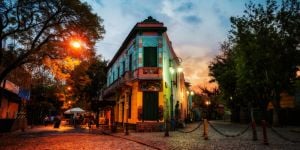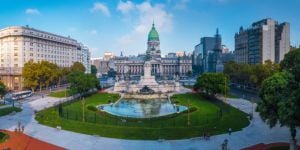
Argentina is a country with a broad blend of vibrant history and modern life. While the nation appreciates newcomers to enjoy its relentless energy, every day comes up with new opportunities regarding living arrangements, from renting a place to buy property such as a large house with a garden. To help you make the best choice, here is a broad overview of the real estate market and conditions relating to buying property in Buenos Aires.
Buying property in Buenos Aires is by no means risk-free, but there is the opportunity for exciting overseas property investments. Just as anywhere else in the world, exercise caution.
Important:
This article is intended as a guide only. You should always seek professional advice when undertaking property transactions.
Consider the reasons for buying property
Think about the reasons for buying property in Argentina. As an emerging market, there are some challenges to overcome.
Renting residential property in Argentina requires many of the same steps as buying a residential property. The only significant difference is the tax amount. But relax. Breathe. Take your time. Thousands of expats before you have bought real estate successfully.
Some issues are practical like the lack of mortgage products and some have to do more with the financial/economic direction the nation as a whole is heading — at any given moment. Inflation rates have been holding back developed, and government figures can't be trusted.
The local real estate market
Argentina is the second-largest country in South America and the eighth largest in the world.
City property is almost always focused on Buenos Aires — the political, social and business hub of the nation. Foreign investment has grown steeply, but with the 2019 elections, they can change.
The city has the infrastructure and transportation facilities a person would expect. Consisting of 48 neighbourhoods, barrios, there are three million residents. Add in the Greater Buenos Aires area, and the city's population grows to around 13 million — about one-third of the nation's census.
Steps for buying property in Buenos Aires
There currently are no restrictions on foreigners buying or owning property.
Buyers first must acquire a CDI tax registration number before completing their purchase. Buyers are also required to have a bank account in the country — if they don't plan on becoming a resident.
Each real estate purchase must be registered through a notary public, escribano, a specialist in handling real estate transactions. The escribano is also responsible for registering the property sale and transferring ownership.
Hire an independent real estate attorney, whom you have researched yourself. Make sure you have copies of all contracts in both English and Spanish.
Once you have found a property and placed a deposit (called reservation in Argentina), you will get the pre-sales contract in about three weeks.
Financing property purchase in Buenos Aires
At present, there are no mortgage products available to foreign buyers. Even for residents, the conditions and interest rates can be prohibitive. The ideal is to be a foreign buyer who is able to finance through other methodologies.
Fees and taxes on property investment in Buenos Aires
Expect fees to be about 8% of the purchase price. This takes care of the escribano's legal fees, property registration and stamp costs.
Income tax for persons intending to rent their property as an income stream is a flat 21% of the gross income earned from the property. A foreigner will have to pay a Personal Asset and Property tax to the AFIP (tax office).
The tax is 7.5% of the property value as recorded on the title deed.
Visas, residency and work permits
The process for applying for visas and permits is complex, difficult and long-winded. Argentina is a bureaucratic nation, so be prepared. It may be easy to hide behind the trope, “Every government has a bureaucracy.” True, but Argentina, at times, seems to have turned it into an art form.
When applying for any type of visa or work permit, you will need documentation as far in advance as you can. The most commonly mandated documents are:
- Passport with a least one year of clear validity left on it
- Passport photos in the standard format
- International birth certificate
- Medical statement
- In some cases, a statement of good conduct from the police is also required. There are several types of visas available, but the most applied for is a temporary residence visa, which allows you to work for up to a year. For this, you will need a confirmed and signed contract of employment.
Budget for living in Buenos Aires
Seven to ten thousand Argentinian pesos is a very tight budget for living in the suburbs of Buenos Aires. To be comfortable, you will need more like ARS 20,000, especially if you are going to own a car. A tank of gas costs about 400 ARS these days, and then you have insurance, "patente" and repairs. Your car alone will cost you between ARS 1,500 and 3,000 per month just in gas, taxes and insurance.
Owning a house in the nice suburbs right outside of the city is expensive. Utilities are expensive in those areas as well. Also, many of those communities have lost any subsidies they used to receive from the government.
Maintenance of your house - that adds up too, one can of house paint is now around ARS 230, a paintbrush ARS 30 and a can of turpentine ARS 100. Don't forget health insurance - two people in their 40's are looking at a minimum of ARS 1,500 per month.
The closer to the city, the more expensive is the property. Zonaprop.com.ar can be helpful in finding appropriate properties for sale and for rent and get an idea of property prices.
We do our best to provide accurate and up to date information. However, if you have noticed any inaccuracies in this article, please let us know in the comments section below.








